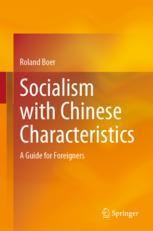A New Beginning
In anticipation of moving to the countryside in China and a new phase of life, an article was published a few days ago on what the “West” may learn from China’s “Two Integrations.” The details are as follows: 2025 《推陈出新:论“两个结合”对西方的启示》(Bring Forth the New Through the Old: What the West can Learn from China’s “Two Integrations”)《世界汉学》(World Sinology) 18 (2025): 1-11. Chinese version here. English version here.
Marxist Philosophy in China: From the Reform and Opening-Up to the New Era – final synopsis.
The book manuscript is now complete: another massive project dealing with Marxist philosophy in China as an academic discipline from 1978 until today. Not only is Marxist philosophy the main form of philosophy in China, but it has also recovered its role as the vanguard of all scholarly disciplines. Practice-based and problem-oriented, this form of philosophy inherits and has contributed significant chapters to the mainstream of Marxist philosophy. Along with Nick Knight’s earlier work (2005) dealing with the initial period from 1923 to the 1950s, my book completes the first English-language history of Marxist philosophy in China. You may read the final synopsis below or download here.
English version here.
Full interview with Liu Xin on CGTN’s “The Point” now available on youtube: “All Things Chinese: Exploring China Through a Western Scholar’s Eyes”
For those who watch youtube, CGTN has posted the exclusive interview with Liu Xin on CGTN’s “The Point.” The interview took place in the academy at Mount Wuyi, established about 800 years ago by Zhu Xi, a scholar whose thought (Neo-Confucianism) came to have deep influence in China and much of Eastern Asia.
Full details: 2024 ‘All Things Chinese: Exploring China Through a Western Scholar’s Eyes’. CGTN “The Point,” Exclusive interview with Liu Xin, 25 March 2024. https://www.cgtn.com/tv/replay?id=BbJGBEA. Also: https://www.youtube.com/watch?v=T5rfFG4Wvas. The lead poster captures a moment in the interview when a butterfly landed on my left shoulder and then right shoulder. Obviously, it too was interested in the interview.
CGTN Interview: The Superiority of China’s Socialist Democracy
A recently completed interview with CGTN on China’s socialist democracy has now been made available. Depending on where you are in the world, you may find it on CGTN’s channel: https://news.cgtn.com/news/2023-04-04/Australian-scholar-on-China-s-Socialist-Democracy-1iJksziYZxK/index.html. If you must, you can also watch it on youtube: https://www.youtube.com/watch?v=N6tUEaWEeoU.
Socialism with Chinese Characteristics: A Concise Guide
In light of a series of educational events concerning socialism with Chinese characteristics, I have uploaded a corrected and updated version of “Socialism with Chinese Characteristics: A Concise Guide.” This is a 25,000 word summary of the book on socialism with Chinese characteristics, but it also includes the results more recent research. It is available on both the “Chinese Marxism” and “Publications” page, and you can also download here.
Socialism with Chinese Characteristics – A Guide for Foreigners

2021. Socialism with Chinese Characteristics: A Guide for Foreigners. Singapore: Springer. The full book in e-format, listed in chapter sequence, may be found here and here. A detailed synopsis of each chapter of the book may be downloaded here.